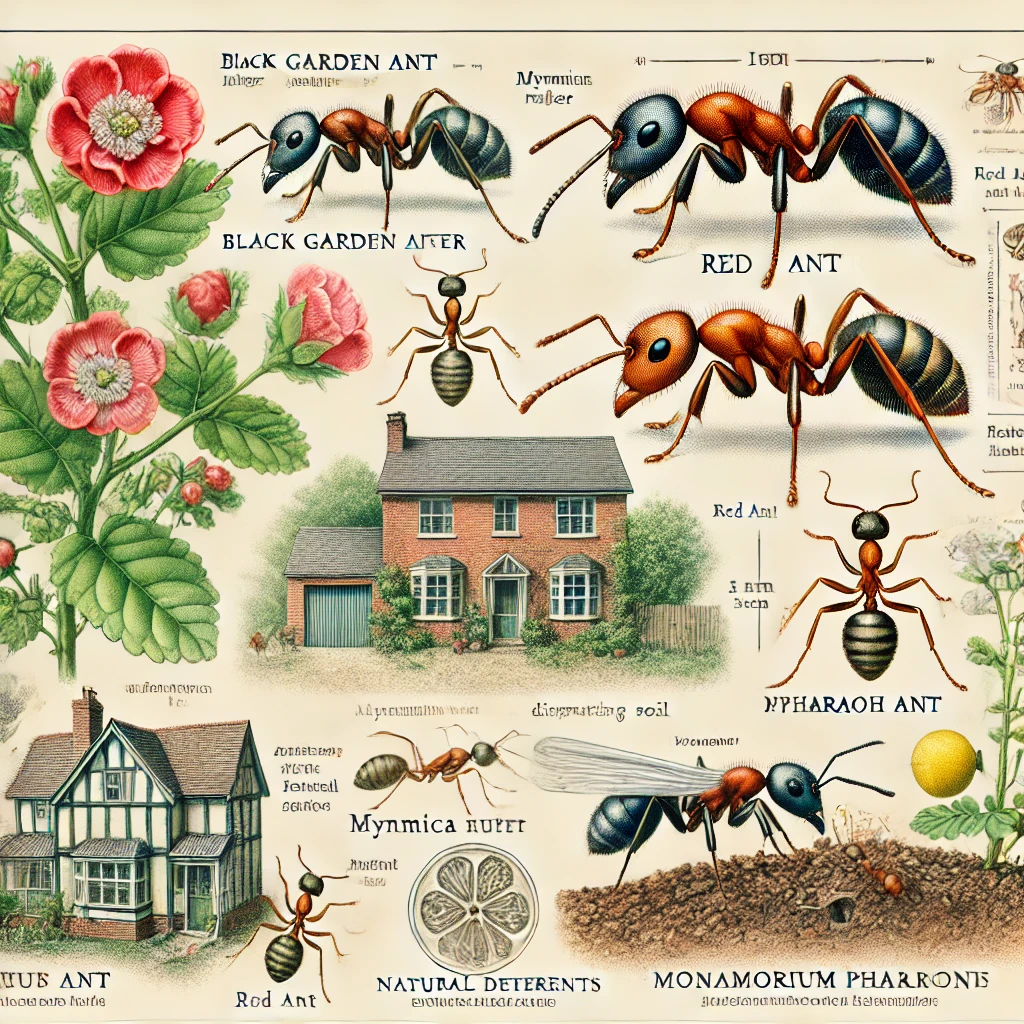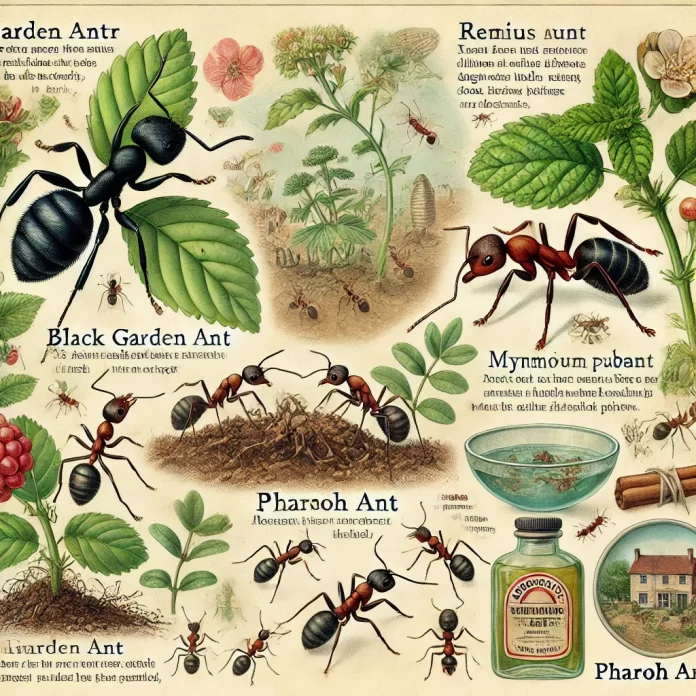In the United Kingdom, over 30 ant species inhabit various environments, with several commonly found in gardens and homes. While ants play essential roles in ecosystems, certain species can become nuisances when they encroach upon human spaces.
Common UK Ant Species and Associated Problems
- Black Garden Ant (Lasius niger)
- Description: Small, dark brown or black ants frequently seen in gardens and entering homes.
- Problems: Attracted to sweet foods, they can invade kitchens in large numbers. Their nests can cause soil displacement, affecting plant roots.
- Red Ant (Myrmica rubra)
- Description: Reddish-brown ants known for their sting.
- Problems: Their sting can cause discomfort to humans and pets. Nests may disrupt lawns and garden beds.
- Pharaoh Ant (Monomorium pharaonis)
- Description: Tiny, yellow-brown ants often found in heated buildings.
- Problems: Known to spread bacteria, posing health risks, especially in hospitals.
Natural Deterrents
Employing eco-friendly methods can help manage ant populations without harming the environment:
- Essential Oils: Ants are repelled by strong scents.
- Peppermint Oil: Mix a few drops with water and spray around entry points and common areas.
- Lemon Juice: Wipe surfaces with fresh lemon juice to deter ants.
- Vinegar Solution: Ants dislike vinegar’s strong smell.
- Combine equal parts of vinegar and water to clean surfaces and disrupt ant trails.
- Herbs and Spices: Certain plants can repel ants.
- Cinnamon: Sprinkling cinnamon near entry points can deter ants.
- Pepper: Ants avoid areas treated with black or cayenne pepper.

Chemical Deterrents
When natural methods are insufficient, chemical options may be considered:
- Ant Baits: Contain attractants mixed with insecticides. Ants carry the bait back to the nest, targeting the colony.
- Residual Sprays: Applied to surfaces, these sprays kill ants on contact and provide ongoing protection.
- Dust Insecticides: Effective for treating nests in walls or under floors.
UK Legal Considerations
Pest control activities in the UK are governed by several regulations to ensure humane and safe practices:
- Prevention of Damage by Pests Act 1949: Requires property owners to keep their premises free from pests. Local authorities can enforce pest control measures if necessary.
- Control of Pesticides Regulations 1986 (as amended): Regulates the use of biocides, including insecticides. Users must follow approved guidelines to ensure safe application.
- Wildlife and Countryside Act 1981: Protects certain wildlife species. While ants are not specifically protected, care must be taken to avoid harming non-target species.
It’s advisable to consult professional pest control services for severe infestations, as they are trained to handle pesticides safely and in compliance with UK laws.




